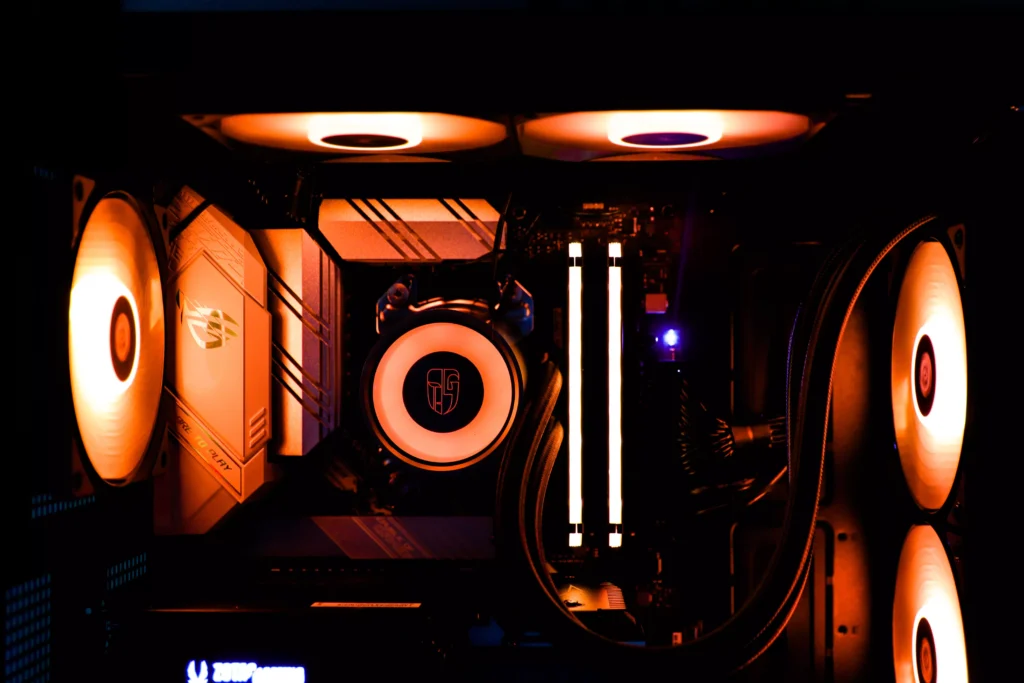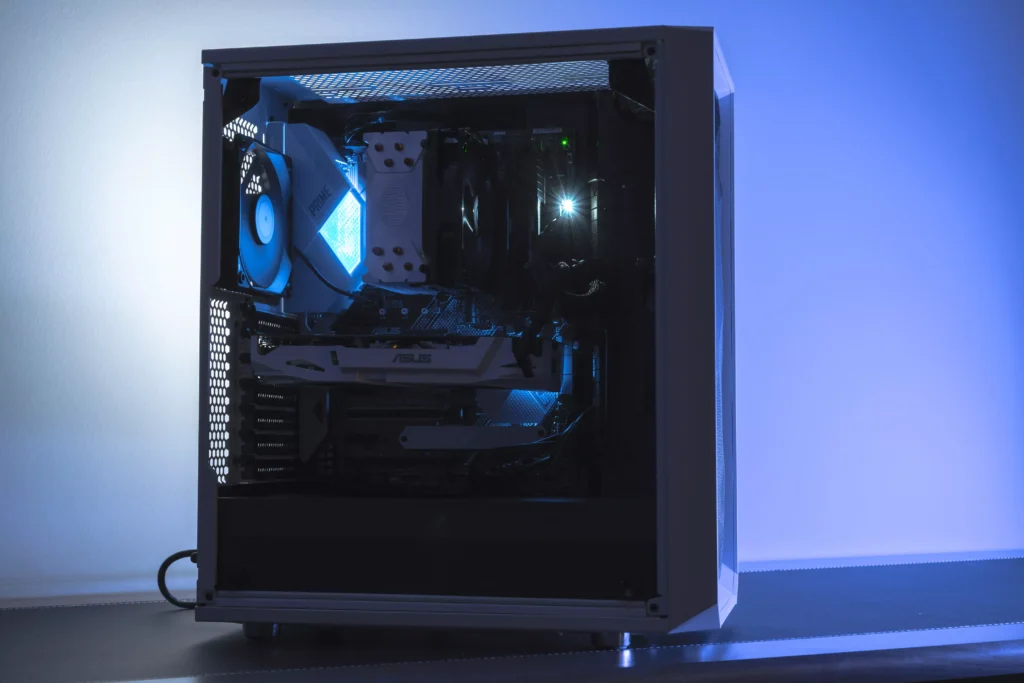You may notice your computer fan working very hard whenever you start doing a heavy task such as playing a game for a long period. Since the CPU is usually fully utilized when the computer does a very demanding task, it can get really hot. CPU cooling is very important to your PC especially when you push it to its limits. Let’s look at both liquid and air cooling to determine which one is the better option.
Featured photo by Abdullah Abid on Unsplash.
Liquid cooling
Liquid coolers work pretty much similar to car radiators. There’s a baseplate (part of the water block) that’s connected to the CPU’s Integrated Heat Spreader (IHS) with a layer of thermal paste in between them. Heat is transferred from the CPU to the baseplate on the water block. The water block is filled with a coolant, usually water, which absorbs the heat and the heated liquid is pumped towards a radiator through one tube. The radiator exposes the ‘hot’ liquid to air being blown by fans which cool the liquid. The cool liquid is then pumped back to the water block to continue cooling the CPU. This cycle is what cools the CPU via liquid cooling.
Air cooling
Similar to liquid cooling, there is a plate connected to the CPU’s IHS with thermal paste between them. The plate is attached to ‘heat pipes’ which conducts heat away from the CPU towards a heat sink. A fan blows away hot air generated by the heat sink. The fan automatically spins faster if increased cooling is needed.
The comparisons for the different CPU cooling
1. Efficiency
In terms of efficiency, liquid cooling is more efficient because water has high thermal conductivity than air. This means water conducts more heat compared to air.
2. Quietness
Liquid cooling usually contains one fan which is also does not overwork unlike air cooling which fans will speed up if it needs to increase cooling. Clearly, when fans speed up, they produce more noise which is the case with air cooling thus liquid cooling is more silent.
3. Cooling period
Liquid cooling is capable of sustaining cooler temperatures over a longer period unlike air cooling.
4. Overclocking headroom
With liquid cooling, you have more ‘room’ or a higher limit for cooling the CPU temperatures when overclocking compared to air cooling.
5. Cost effectiveness
Air cooling is a cost efficient way of CPU cooling compared to liquid cooling which is more expensive.
6. Installation
It is easier to install air coolers than liquid coolers. Liquid coolers have a complex build most of the time.
7. Space
Although liquid coolers have complex builds, they take up less space compared to having many fans for air cooling.
8. Targeting components
With liquid cooling, you can target specific components such as the GPU for cooling. It is difficult to target specific components for cooling without adding lots of fans which results in a bulky setup.
9. Energy efficiency
Again with a lot of fans, you use more energy. Liquid cooling usually has just one fan which will probably rotate at a constant speed despite rising temperatures. Air cooling most of the time works best with more fans which would rotate faster when temperatures rise which results in using more energy.
10. Aesthetics
This one depends on your opinion but I think liquid cooling looks very cool. Especially with customizable colors.
We hope you enjoyed this article. You can find more articles like this here.



